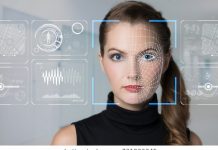Adapting educational materials for remote and blended learning environments has become increasingly important in the wake of the COVID-19 pandemic. Science Studies Regular, a popular curriculum resource meant to engage students with weekly science content, faces distinctive challenges and opportunities in this particular transition. This article explores the actual challenges of adapting Technology Studies Weekly for remote and blended learning along with identifies best practices to enhance the effectiveness in these new educative contexts.
One of the primary challenges within adapting Science Studies Every week for remote learning is usually maintaining student engagement with no traditional classroom environment. The actual interactive and hands-on character of science education typically relies on physical presence, where teachers can facilitate experiments, group activities, and conversations. To address this, educators should leverage digital tools along with resources that replicate the interactive elements of the course. Incorporating multimedia elements such as videos, simulations, and virtual labs can help bring scientific concepts to life and keep learners engaged. Platforms like Move or Google Meet could facilitate live demonstrations as well as discussions, while tools including Nearpod and Kahoot! present interactive quizzes and actions to maintain student interest.
A different significant challenge is ensuring equitable access to technology along with the internet. Not all students have reliable internet connections or usage of devices at home, which can exacerbate educational inequalities. Schools along with educators must consider ways of bridge this digital partition, such as providing devices and internet access to students inside need, creating downloadable content material for offline use, in addition to offering printed materials while alternatives. Ensuring that all learners can access and participate in remote learning is essential to get maintaining equity in knowledge.
Assessment and feedback provide additional challenges in distant learning environments. Traditional strategies to assessment, such as in-class quizzes and tests, need to be modified to online formats. Digital assessment tools like Google Forms, Quizizz, and Edmodo can be used to create and spread assessments while providing immediate feedback to students. Educators should also consider incorporating formative assessments, such as digital exit tickets and reflective magazines, to gauge student being familiar with continuously. Providing timely and also constructive feedback is crucial intended for student learning and helps recognize areas where additional support might be needed.
Communication and collaboration are vital components of efficient remote and blended mastering. Science Studies Weekly’s course can be enhanced by influencing regular communication between instructors, students, and parents. Teachers really should establish clear communication avenues, such as email, messaging blog, or learning management programs (LMS) like Google School room or Canvas, to keep students and parents informed about projects, deadlines, and resources. Encouraging collaboration among students by means of group projects, discussion message boards, and peer review actions can also enhance the learning experience and help maintain a sense of local community.
Differentiating instruction to meet assorted learning needs is another significant consideration. Remote learning environments can make it more challenging to provide personalised support to students. Lecturers should use data through assessments and observations https://dotbiotech.com/fete-cochete-sandale-k.html to identify students’ strengths and weaknesses and customize instruction accordingly. Utilizing adaptive learning platforms that change the content and pace according to individual student performance can be beneficial. Additionally , offering a variety of learning materials, such as video clips, readings, and interactive routines, can cater to different mastering styles and preferences.
Specialized development for teachers is crucial to successfully adapting Scientific research Studies Weekly for remote and blended learning. School staff need training and help to effectively use electronic digital tools, design engaging online lessons, and manage the unique challenges of remote teaching. Professional development programs ought to focus on best practices for online teaching, including strategies for college student engagement, assessment, and difference. Providing ongoing support by way of online communities of practice, coaching, and access to resources will help teachers continuously improve their distant teaching skills.
One ideal practice is to incorporate project-based learning (PBL) into the Scientific research Studies Weekly curriculum. PBL encourages students to explore real-world problems and develop remedies, fostering deeper understanding and critical thinking skills. In a very remote or blended finding out environment, PBL can be facilitated through digital collaboration instruments, such as shared documents, online meeting spaces, and media presentations. This approach not only lines up with the hands-on nature connected with science education but also aids students develop essential capabilities like research, collaboration, as well as communication.
Finally, involving mothers and fathers and caregivers in the mastering process is essential for the accomplishment of remote and blended thoroughly learning. Providing parents along with resources and guidance on the way to support their children’s studying at home can enhance university student outcomes. Regular communication using parents about their child’s advancement, challenges, and successes helps create a supportive learning setting. Schools can also offer virtual workshops or informational lessons for parents to equip associated with strategies and tools to assist their children effectively.
Adapting Scientific research Studies Weekly for remote control and blended learning situations presents numerous challenges, nevertheless by leveraging digital instruments, ensuring equitable access, as well as fostering communication and collaboration, educators can overcome these kind of obstacles. By incorporating best practices for example project-based learning, differentiated education, and professional development, Scientific research Studies Weekly can continue to give high-quality science education that will engages and inspires pupils, regardless of the learning environment.










